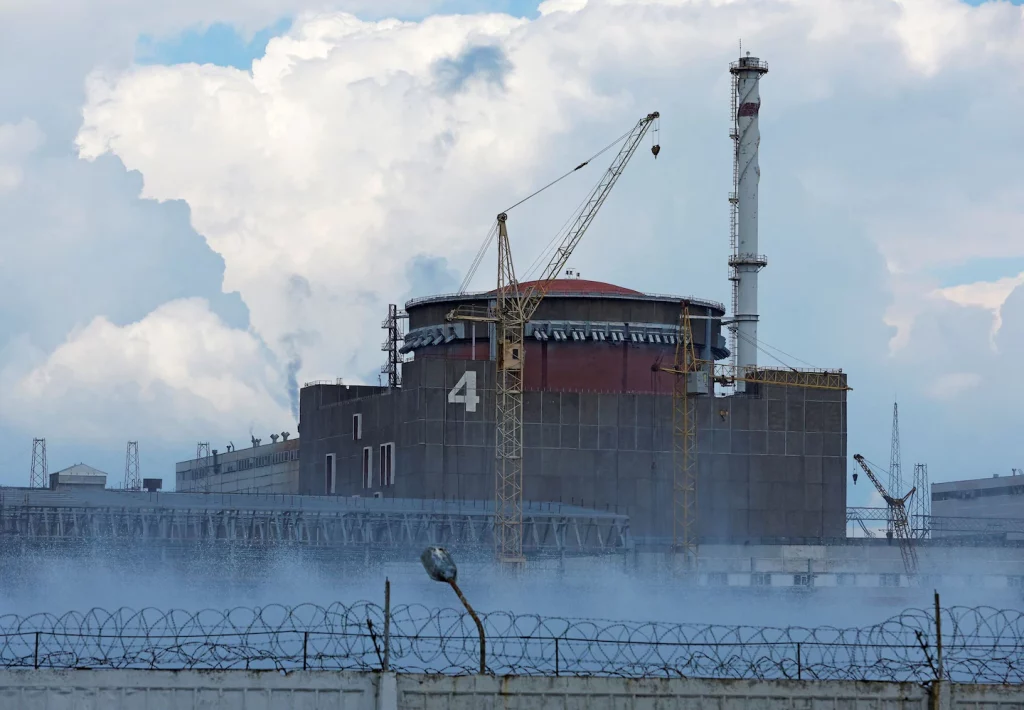
“Military action that threatens the safety and security of the Zaporizhzhya nuclear power plant is totally unacceptable and must be avoided at all costs,” Grossi’s statement said.
After the bombing on Friday, Russia and Ukraine blamed each other for the attack. The facility near the front lines of the fighting has been under Russian control since March, but is still staffed by Ukrainians.
in him at night Tabuk On Friday, Ukrainian President Volodymyr Zelensky cited the bombing of Zaporizhia as another reason why Russia should be recognized as a “state sponsor of terrorism,” which he has repeatedly called for.
Zelensky also called for sanctions against the Russian nuclear industry.
“This is a purely safety issue,” he said. “A person who creates nuclear threats to other nations is certainly incapable of using nuclear techniques safely.”
In turn, the Russian Defense Ministry accused Ukraine of the attack, noting that the protection of Russian-backed forces was the reason why the plant did not suffer more damage. The Ministry of Defense said in a statement that the bombing destroyed two power lines and a water pipeline, which led to the interruption of water and electricity for more than ten thousand citizens.
Russia originally seized the facility after one of its projectiles caused a fire in the station complex, raising concerns about the safety of the four Ukrainian nuclear sites that persisted in the ensuing months.
“The Ukrainian employees who operate the plant under Russian occupation must be able to perform their important duties without threats or pressures that undermine not only their own safety but also the integrity of the facility itself,” Grossi said in his statement.
The American Nuclear Society (ANS) backed Grossi’s calls to halt attacks on the facility and send a mission there, and condemned the bombing in a statement on Saturday.
“It is unjustifiable to use a civilian nuclear facility as a military base or to target it in a military operation,” said NGO President Stephen Arndt and CEO Craig Percy.
Grossi said Friday’s bombing did not damage any of the six Zaporizhia reactors and did not release radioactive materials into the environment, but that the plant was damaged elsewhere.
He added that the International Atomic Energy Agency’s mission to the nuclear power plant would allow inspectors to assess it and gather independent information on reports from Ukraine and Russia.
But the situation around Zaporizhzhya is likely to get more, and no less dangerous, according to the British Ministry of Defense, because the most intense fighting is the shift in the direction of the power plant.
The International Atomic Energy Agency has been working for months to ensure the safety of Ukraine’s nuclear sites. In April, Gross led a mission to the country’s Chernobyl plant – the site of one of the world’s worst nuclear disasters in 1986 – after Russian-backed forces withdrew from it in March.
He led a follow-up mission to the site in early June with experts who assessed his condition and provided training in radiation monitoring equipment. Grossi said a similar mission for Zaporizhzhia is “critical” to its security.
“But this will need cooperation, understanding and facilitation from both Ukraine and Russia,” he said, adding that UN Secretary-General Antonio Guterres backed the agency’s plan.
Grossi was in New York on Monday for the 10th Review Conference of the Treaty on the Non-Proliferation of Nuclear Weapons. In his keynote address, the IAEA report discussed “seven corners“For nuclear safety and security, which includes the physical integrity of the facilities, reliable communication with regulators, and the ability of personnel to operate safely.
Grossi said in his statement that these pillars were violated in Zaporizhia – during Friday’s bombing and in the months following the Russian invasion.
“We can’t afford to lose any more time,” he said. “In order to protect people in Ukraine and elsewhere from a potential nuclear accident, we must all put our differences aside and act now.”




More Stories
Journalists convicted in Hong Kong sedition case
Stand News: Hong Kong journalists convicted of sedition in case critics say highlights erosion of press freedom
Shark decapitates teen off Jamaica coast